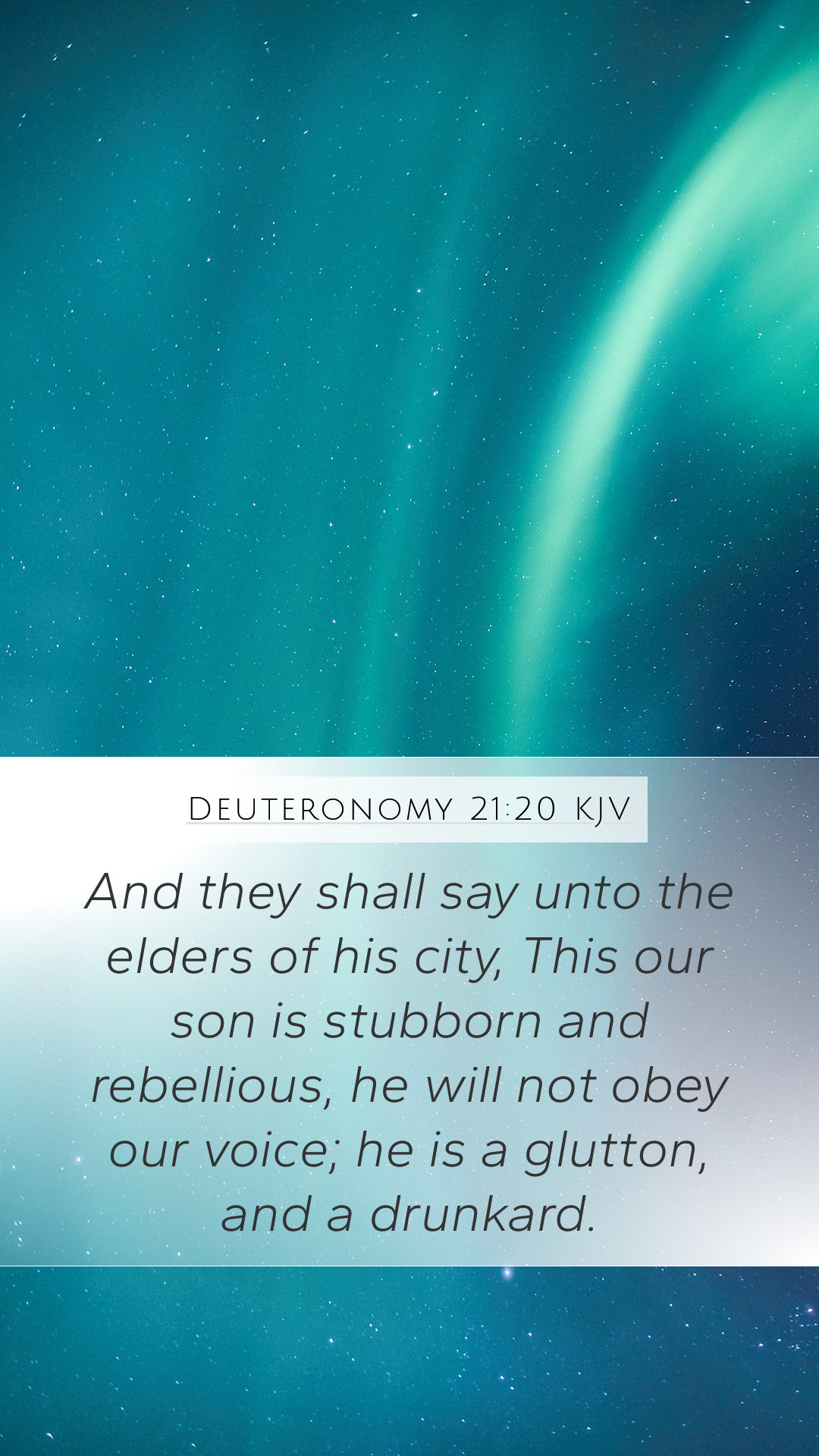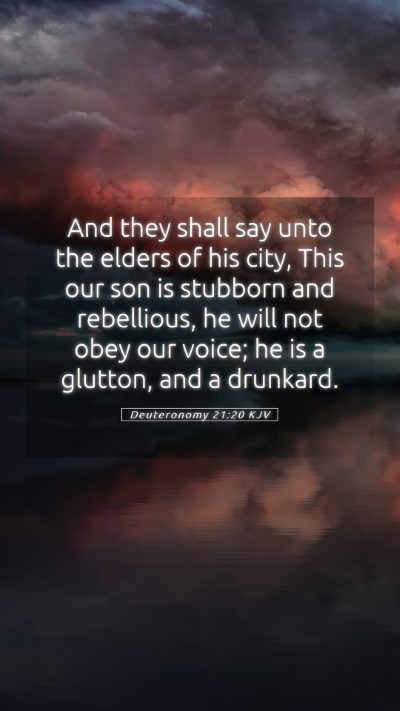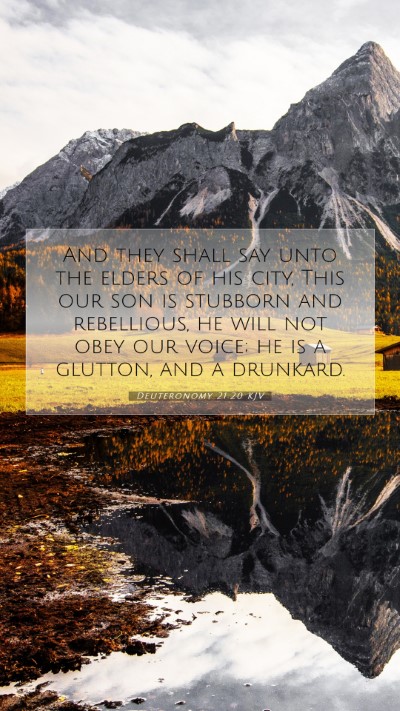Understanding Deuteronomy 21:20
Bible Verse: Deuteronomy 21:20 - "And they shall say unto the elders of his city, This our son is stubborn and rebellious, he will not obey our voice; he is a glutton, and a drunkard."
Overview of the Verse
This verse addresses a grave situation in which a parent must bring their son, seen as rebellious and disobedient, before the elders of the city. The passage outlines a process that highlights the seriousness of rebellion against family and community, echoing themes of parental authority, societal responsibility, and the historical context of Israelite law.
Insights from Public Domain Commentaries
-
Matthew Henry's Commentary
Matthew Henry emphasizes the severe implications of disobedience as a reflection of one's character. He notes that this radical example serves to instill fear of rebellion in the community and underlines the need for societal order. The disobedient child represents a threat to family honor and the community's social fabric.
-
Albert Barnes' Commentary
Albert Barnes interprets this verse as an indicator of the consequences of undisciplined behavior. He suggests that the act of bringing such a son before the elders points to the serious nature of his actions, catalyzing community involvement as a means to safeguard cultural values. Barnes highlights the roles of both the parents and the elders in ensuring discipline and moral responsibility.
-
Adam Clarke's Commentary
Adam Clarke provides an in-depth examination of the terms "stubborn," "rebellious," "glutton," and "drunkard." He explains how these descriptors serve to paint a picture of a character that is not merely disobedient but also indulges excessively. Clarke discusses the gravity of the actions described and reminds readers of the broader implications of such behaviors on community life and familial respect.
Theological Implications
The verse leads to several theological reflections particularly concerning:
- The Authority of Parents: The command here suggests that parents bear responsibility for their children’s behavior and must seek help in correcting it when needed.
- The Role of Community: The elders are called to partake in the judgment, reinforcing that family issues can have community-wide implications.
- Consequences of Rebellion: The seriousness attached to disobedience highlights the cultural and theological consequences of turning away from Godly counsel.
Historical Context
This passage provides insight into ancient Israelite culture, where communal responsibility was paramount. The legal structure was designed to maintain order and promote adherence to covenant obligations, reflecting a society where personal conduct directly impacted community stability.
Application in Daily Life
How can we apply the insights from Deuteronomy 21:20 in our own lives?
- Encouraging Obedience: The call for obedience is timeless and reflects broader themes of respect towards authorities, both familial and societal.
- Community Responsibility: The involvement of the broader community in familial issues serves as a reminder of the importance of accountability and mutual support in values and upbringing.
- Addressing Behaviors: This verse can encourage individuals to address troubling behaviors early - whether in family or community contexts.
Related Bible Verses
- Exodus 21:15: Emphasizes the seriousness of parental authority and the expectation of respect.
- Proverbs 22:15: Discusses foolishness bound in the heart of a child, aligning with the themes in Deuteronomy.
- 1 Samuel 15:23: Highlights that rebellion is as the sin of witchcraft, illustrating the gravity of disobedience.
Conclusion
In summary, Deuteronomy 21:20 serves as a stark reminder of the importance of obedience, the role of family and community in upholding values, and the serious implications of turning away from responsible behavior. Through understanding this scripture, we foster greater insights into our own lives and the communities we inhabit.


